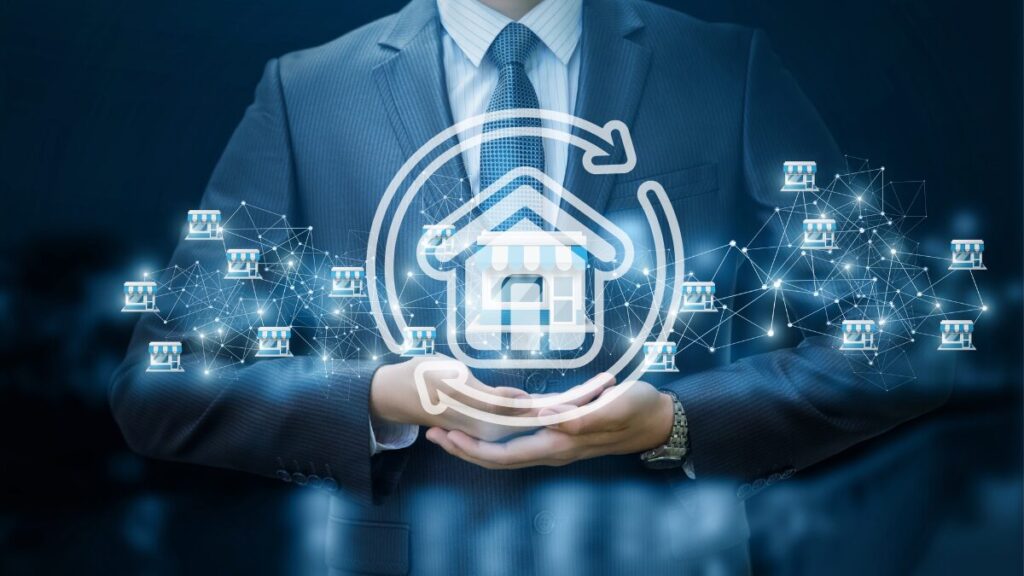The rental property management industry is always changing, and technology is now a must-have tool for improving efficiency, satisfying tenants, and increasing profits. Property managers can greatly improve their efficiency by using incorporating technology to manage lease agreements and maintenance requests. Learn how property managers can enhance their operations by introducing technology into rental property management systems. This article discusses numerous techniques for doing just that.
Key Takeaways:
- Centralizes tasks such as tenant tracking, financial management, and maintenance, increasing efficiency and accuracy.
- Provides remote access, scalability, and data security, enhancing flexibility and reliability.
- Enhances security, energy efficiency, and tenant satisfaction with modern amenities.
- Automates processes like rent collection and maintenance requests to save time, ensure consistency, and reduce errors.
1. Adopting Property Management Software
Property management software is the backbone of modern rental property management. It consolidates various functions into a single platform, enabling property managers to handle tasks more efficiently.
Key Features to Look For:
Tenant and Lease Tracking: Automates the management of tenant information, lease agreements, and renewals.
Financial Management: Handles rent collection, accounting, and financial reporting.
Maintenance Management: Helps tenants submit maintenance requests that property managers manage.
Benefits:
Increased Efficiency: Reduces manual data entry and paperwork.
Enhanced Accuracy: Minimizes human errors in financial calculations and tenant records.
Improved Communication: Facilitates clear and prompt communication between tenants and property managers.
2. Utilizing Cloud-Based Solutions
Cloud technology offers a range of benefits for rental property management, including accessibility, scalability, and data security.
Advantages:
Remote Access: Enables property managers to access information and manage properties from anywhere with an internet connection.
Scalability: Supports the growth of your portfolio without the need for extensive hardware investments.
Data Security: Provides secure data storage and backup solutions, reducing the risk of data loss.
Best Practices:
Choose a Reputable Provider: Ensure your cloud service provider offers robust security measures and reliable customer support.
Regular Backups: Schedule automatic backups to protect against data loss.
3. Implementing Smart Home Technology
Integrating smart home devices can enhance the tenant experience and improve property management efficiency.
Popular Smart Devices:
Locks: Allow remote access control and enhance security.
Smart Thermostats: Enable energy efficiency and can be managed remotely.
Smart Lighting: Offers energy savings and customizable lighting schedules.
Benefits:
Enhanced Security: Provides better control over property access and security.
Energy Efficiency: Helps reduce utility costs and promotes sustainability.
Increased Tenant Satisfaction: Modern amenities attract tenants and can lead to higher occupancy rates.
4. Leveraging Automation for Routine Tasks
Automation can simplify and accelerate routine tasks, freeing up time for property managers to focus on more strategic activities.
Examples of Automated Tasks:
Rent Collection: Automate rent reminders and payment processing.
Lease Renewals: Set up automated notifications for lease renewals and expirations.
Maintenance Requests: Use automated workflows to assign and track maintenance requests.
Benefits:
Time Savings: Reduces the time spent on repetitive tasks.
Consistency: Ensures tasks are completed promptly and consistently.
Error Reduction: Minimizes the risk of human errors in routine processes.
5. Enhancing Communication with Tenants
Effective communication is crucial for maintaining positive tenant relationships and ensuring smooth property management.
Communication Tools:
Tenant Portals: Provide tenants with a centralized platform to manage their accounts, pay rent, and submit maintenance requests.
Mobile Apps: Offer tenants and property managers a convenient way to communicate and manage property-related tasks on the go.
Chatbots: Use AI-powered chatbots to handle common inquiries and provide instant responses.
Benefits:
Improved Tenant Experience: Enhances convenience and responsiveness.
Efficient Issue Resolution: Facilitates quicker resolution of tenant concerns and requests.
Streamlined Communication: Reduces the volume of phone calls and emails.
6. Analyzing Data for Informed Decision-Making
Data analytics can provide valuable insights into property performance and help property managers make informed decisions.
Key Metrics to Analyze:
Occupancy Rates: Track and analyze trends to optimize rental pricing and marketing strategies.
Maintenance Costs: Monitor and manage maintenance expenses to identify areas for cost savings.
Tenant Demographics: Understand tenant preferences and needs to tailor property offerings.
Benefits:
Strategic Planning: Enables data-driven decision-making and strategic planning.
Performance Monitoring: Provides a clear view of property performance and areas for improvement.
Market Trends: Helps discover trends and adjust plans.
7. Integrating Online Marketing and Leasing Platforms
Online marketing and leasing platforms are essential for reaching a wider audience and streamlining the leasing process.
Key Platforms:
Listing Sites: Use popular property listing websites to market available rentals and attract potential tenants.
Social Media: Leverage social media channels to promote properties and engage with prospective tenants.
Virtual Tours: Offer virtual tours to provide potential tenants with an immersive property experience.
Benefits:
Increased Visibility: Expands your reach and attracts a larger pool of potential tenants.
Faster Leasing: Speeds up the leasing process with online applications and virtual tours.
Enhanced Marketing: Utilizes targeted marketing strategies to reach the right audience.
FAQs
1. How can property management software improve efficiency in managing rental properties?
Property management software integrates tenant tracking, lease administration, and financial operations. This connectivity decreases manual data entry, errors, and tenant-property manager interactions, enhancing efficiency.
2. What are the benefits of using cloud-based solutions for rental property management?
Cloud-based solutions offer remote access to property management systems, allowing property managers to manage properties from anywhere with an internet connection.
3. How does implementing smart home technology impact tenant satisfaction and property management?
This technology improves tenant satisfaction by providing convenience and control over their living environment, and helps property managers reduce utility costs and improve property appeal.
Conclusion
Increased productivity, happier tenants, and more money in the bank are all possible outcomes of modernizing rental property management software with technological advancements. Property managers may remain competitive by using property management software, cloud-based solutions, smart home integration, automation of regular activities, improved communication, data analysis, and online marketing platforms. Adopting these practices will put your rental properties in a better position for the future and simplify operations.
